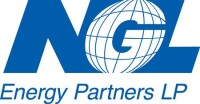About Association of oil pipe lines
The Association of Oil Pipe Lines (AOPL) is a non-profit organization that has been promoting responsible policies, safety excellence, and public support for liquids pipelines since its inception. The association represents the interests of pipeline operators in North America and works towards ensuring that the transportation of oil and other liquid products is done safely, efficiently, and with minimal impact on the environment.
One of the primary objectives of AOPL is to promote responsible policies that govern the operation of pipelines. The association works closely with regulatory bodies such as the Pipeline and Hazardous Materials Safety Administration (PHMSA) to ensure that regulations are fair, reasonable, and effective in promoting safety while allowing for efficient operations. AOPL also advocates for policies that encourage investment in pipeline infrastructure to meet growing demand for energy products.
Safety excellence is another key focus area for AOPL. The association recognizes that pipeline safety is critical not only to protect people but also to maintain public trust in pipeline operations. To this end, AOPL has developed a number of initiatives aimed at improving safety performance across all aspects of pipeline operations. These include programs focused on leak detection technology development, emergency response planning and training, as well as regular inspections and maintenance activities.
Public support for liquids pipelines is also an important aspect of AOPL's work. The association recognizes that pipelines are essential infrastructure components necessary to transport energy products from production sites to refineries or distribution centers where they can be processed or delivered directly to consumers. However, public perception about pipelines can be influenced by negative media coverage or misinformation campaigns by anti-pipeline groups.
To address this challenge head-on, AOPL engages with stakeholders at all levels including local communities along pipeline routes as well as policymakers at state and federal levels. Through education campaigns aimed at dispelling myths about pipelines' environmental impact or risks associated with their operation; outreach efforts designed specifically around building relationships between industry representatives & community leaders; advocacy work focused on advancing pro-pipeline legislation - all these efforts help build trust among stakeholders who may have concerns about how oil pipe lines operate.
In conclusion:
The Association Of Oil Pipe Lines (AOPL) plays a vital role in promoting responsible policies governing oil pipe lines' operation while ensuring their safe transportation across North America's vast network through various initiatives like leak detection technology development programs & emergency response planning/training sessions etc., which helps maintain public trust towards these essential infrastructures necessary for transporting energy products from production sites-to-refineries/distribution centers where they can be processed/delivered directly into consumers' hands!
